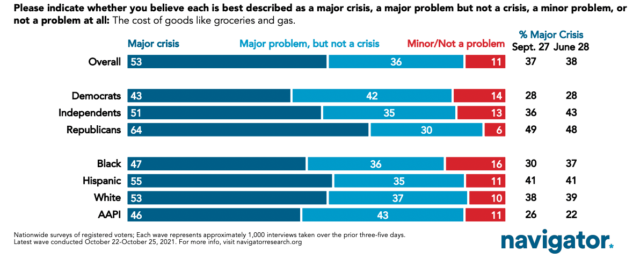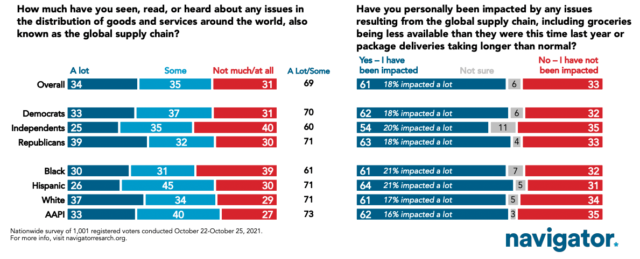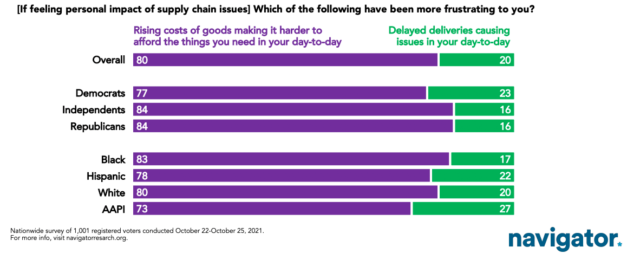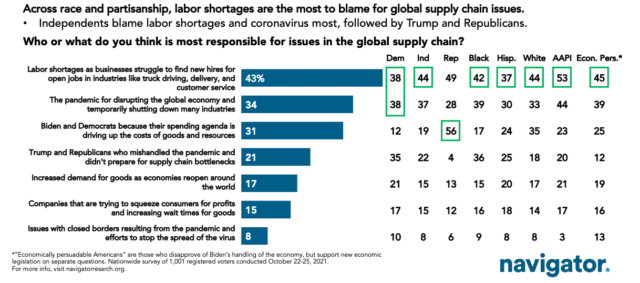- Americans across partisanship and race increasingly describe the cost of everyday goods, like groceries and gas, as a “major crisis.”
- Majorities are hearing about global supply chain issues and report feeling personal impacts, especially in rising costs.
- Labor shortages and the pandemic are seen as the most to blame for issues in the global supply chain.
A Growing Share of Americans Feel the Cost of Goods, Like Groceries and Gas, Constitutes a “Major Crisis”
Since just last month, there has been a 16-point increase in the share who say the cost of groceries and gas is a “major crisis”: there has been a double-digit increase in this sentiment across partisanship and race.

Americans Are Hearing About Supply Chain Issues and Are Feeling the Personal Impact Across the Board
Nearly seven in ten Americans report hearing about issues in the global supply chain, and roughly three in five say they have been personally impacted across racial and partisan groups.

The Greatest Impacts from Supply Chain Issues Are Not Delivery Delays, But Rising Costs
Among those who are feeling the impact of supply chain issues, four in five say rising costs are more frustrating than delivery delays.

Labor Shortages and the Pandemic Are Cited As Top Culprits for Global Supply Chain Disruption
Across race and partisanship, labor shortages are the most to blame for global supply chain issues.
- Independents blame labor shortages and coronavirus most, followed by Trump and Republicans.

About The Study
This release features findings from a national online survey of 1,001 registered voters conducted October 22-25, 2021. Additional interviews were conducted among 100 Hispanic voters, 100 African American voters, 100 independents without a partisan lean, and 73 Asian American and Pacific Islander voters.

